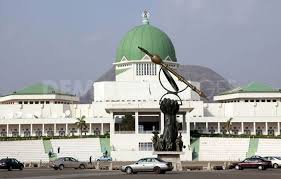Stakeholders attending a public hearing at the Lagos State House of Assembly have thrown their weight behind a Bill to establish the Lagos State Institute of Legislative Studies.
Commenting on the relevance of the bill, Director, National Institute of Legislative and Democratic Studies, Abuja, Dr Shuaib Danwaka, said the institute was established to provide training for lawmakers and legislative staff.
Danwaka, the guest speaker at the event, commended the assembly for aligning with the Federal Government by seeking to establish its own institute, as democracy could be sustained through capacity development
The News Agency of Nigeria (NAN) reports that the institute is to be charged with the responsibility of conducting quality academic and professional research, training and advocacy on democratic governance, legislative practice/procedures and for related purposes
Danwaka said the bill seeking to establish the institute that would provide capacity, would enable the assembly to discharge its duties of lawmaking and oversight functions effectively.
“The duties of the legislature cannot be discharged without capacity. With the institute, the capacity of the legislature and staff is guaranteed and will go beyond Lagos and Nigeria.
“The institute will act as a centre of excellence for research and publication on democratic governance and legislative practice and procedures; for continuing education on democracy and legislation.

“Conduct courses for all categories of Legislative officers and support staff, with a view to expanding their overall knowledge and performance in different areas of service.
“Provide continuing education for all categories of legislative officers by undertaking, organising, conducting and facilitating studies, courses, lectures, seminars, workshops, conferences and other programmes related to legislative education”, Danwaka said.
Corroborating the guest speaker’s perspective, Prof. Odion Akhaine said the institute would promote and disseminate among legislative assemblies and local governments in the state.
In his overview of the bill, the House Majority Leader, Mr Sanni Agunbiade, noted that the institute would disseminate publication of books, journals, records, reports or other means of information, regarding its activities, subject to the approval of the Board.
The institute would also promote and protect constitutional due process in legislative practices and encourage private sector participation, while collaborating with national and international organisations on research and training on issues relevant to its mandate, he said.
The majority leader observed that the bill also empowered the institute with powers to conduct periodic short and refresher courses for national and state legislators, staff, committee secretaries and political aides on democracy and good governance.
He said the bill would provide research reports for legislation for the house of assembly, its committees or the Legislative Drafting and Legal Services of the assembly.
On the institute’s governance structure, Agunbiade said the Council of the institute would comprise the Speaker as Chairman, or at his instance, the Deputy Speaker, and five serving Honourable Members from the five divisions of the state, nominated by the speaker.
Others would be the Chairman, House of Assembly Service Commission, Clerk to the House of Assembly and the Director-General of the Institute as a Member/Secretary.
In his keynote address, the Speaker of the house, Mr Mudashiru Obasa said it was the tradition of the house to organise stakeholders’ meeting before any bill was passed.
Represented by his Deputy, Mr Wasiu Sanni-Eshinlokun, the speaker recalled the establishment of the National Institute for Legislative and Democratic Studies by former president Goodluck Jonathan in 2011 and how it was the first in Africa.
He added that Lagos state was replicating this to enhance good governance.
Earlier, in his address of welcome, Chairman of the House Committee on Education, Mr Ganiu Okanlawon, said the public hearing was aimed at involving relevant stakeholders and members of the public.
He said the institute would provide education for lawmakers and all kinds of legislative officers, through seminars, workshops, conferences and other kinds of training.
This was corroborated by the Chairman of the House Committee on Tertiary Education, Mr Owolabi Ajani, who said the assembly would do what was expected of it before the bill would be passed to the governor for his assent. (NAN)
Spread the love